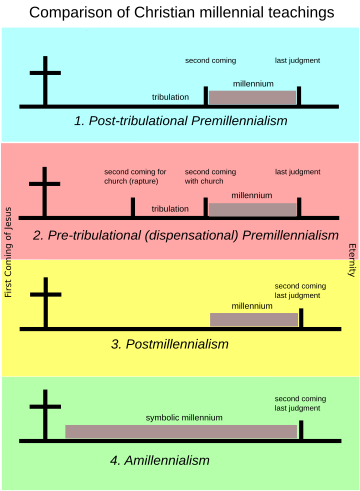The Vision, pp. 148-150
So. Magdalene was telling her coworkers about how she ended up on the streets, remember? Last week, she recounted being homeschooled in a dysfunctional family. This week, she gives an answer to another question.
The Impossible Government-Funded Abortion
Bobbie Jo asks Magdalene what she did with the baby.
Magdalene was pregnant when she left home, remember? One of her brother’s friends got her pregnant, and her dad was angry because the guy who got her pregnant was Black. So she left home. What did she do with the baby?
Magdalene’s head dropped. Her white hair draped over her face. Her voice sounded dead. “I aborted the baby. Had it taken care of at the clinic. Lots of people do. The government pays for it.” She shrugged. “One less kid on welfare.”
No. What? No!
I’m really really tired of conservatives not knowing how any of this actually works. Medicaid covers abortions in case of rape. Magdalene appears to say that, in her view, she was not raped. Besides, to have Medicaid cover your abortion, even if you can prove you were raped, you have to be on Medicaid. Magdalene is a minor. If she has health insurance, it’s through her parents.
In theory, Magdalene might be on the CHIP program, a government program that insures low income children and is a form of Medicaid. But she probably isn’t. For one thing, her family would only qualify if they are low income and do not have insurance through an employer. (We haven’t been given information on her family’s income one way or another.) For another thing, Magdalene’s parents probably wouldn’t sign up for it out of principal. My guess is that if they’re not insured through Magdalene’s father’s job, they are either uninsured, or they’ve bought into one of those Christian healthcare cost sharing programs.
But even if the kids were on CHIP, I sincerely doubt that Magdalene could access it without her parent’s involvement. And remember, she’d still have to prove she was raped. There’s no way the government paid for her abortion.
In situations like Magdalene’s, the most likely scenario would be that she would ask all of her friends to pitch in, and scrape together what she could. An abortion would probably run her about $500.
Oh but also—she’s a minor! To get an abortion, she’d have to either have her parents’ approval, or a judge’s approval. It does not sound like she had either. She was a runaway at that time, and I’m pretty sure a judge would ask about her living situation. Magdalene could not have gotten a legal abortion, much less one funded by the government. The girls she lives with (I think we’re to assume they’re also sex workers?) might have pointed her to pills you can buy online, or some sort of other back alley solution. But just walk into a clinic and get an abortion and the government foots the bill? No.
The Impossible Late Term Abortion
At this point, Magdalene starts to sob:
“I was really scared. I was over seven months along before I went back to Planned Parenthood.”
No. What? No!
(Side note: The inclusion of the phrase “back to” is strange—she never went to Planned Parenthood a first time, so I can only assume this is the product of bad editing. So no, you didn’t miss anything.)
But over seven months along?? Absolutely no way did this happen like this! This would have put her at at least 28 weeks.
I googled Planned Parenthood clinics in North Carolina that perform abortions. Since she was last in Winston-Salem, when Derek picked her up, checked that one first: “In-clinic abortion is offered up to 13 weeks and 6 days after the start of your last menstrual period.” So clearly, she couldn’t have gotten her 28 week abortion there. I just checked all of the other Planned Parenthood clinics in NC that offer abortions, and the only one that offers abortions later than 13 weeks and 6 days is Chapel Hill, which performs abortions up to 19 weeks and 6 days. That’s still not 28 weeks.
But there’s another problem: even if there were a Planned Parenthood location in North Carolina that performed abortions at 28 weeks—and there are some locations that do—abortions this late are only performed for medical reasons. Magdalene simply could not have gotten this abortion. It does not work like that. If she’d said she got her abortion at 10 weeks, that she’d scraped together the money and her friend’s parent had pretended to be her parent, that would have at least made some sense. (Although even here, I highly doubt you can get away with having an imposter parent.)
Let’s be clear about what this all means: it means Debi thinks a 16-year-old who is 28 weeks pregnant can walk into a Planned Parenthood alone and get a government-funded abortion, just like that. And from the way she writes, she doesn’t seem to think this is at all rare or out of the ordinary, either. This is what many conservatives think abortion looks like.
Ugh.
The Missing Motivations
As we return to Magdalene, I want you to focus on something other than the logistics: does Magdalene ever address what she wanted? Does she ever say why she had an abortion, or what she felt like her options looked like?
With that, back to Magdalene:
“When I arrived, there was a group of pro-life people in the parking lot. They told me how the doctor would give me medicine to bring on labor, then stick a giant needle in the baby’s head as she was coming down to be born. Then, he would suck her brains out and dump her in a garbage pail.
“The people that talked with me begged me not to do it. They told me they would give me a nice place to live and pay for my baby to be born and help me find a good home for her, but I went in anyway.” Magdalene’s voice sounded ragged. “I was done with hoping and depending on people, especially religious people.”
Um. What.
I’ve been outside of abortion clinics. Those protesters? All they do is yell. They don’t take the time to explain, in graphic detail, exactly what abortion involves, because all they have the chance to do as yell at women as they walk by. As a result, they tend to yell shorter things. And the women who go to clinics for abortions don’t walk up to the protesters and hold conversations with them. In fact, most clinics have escorts to walk women past the protestors, to ensure that they aren’t hassled.
Oh and by the way? Magdalene’s response—“I was done with hoping and depending on people, especially religious people”—is actually a good argument for better government programs. Not intrusive ones that dehumanize people, of course. But imagine living in a society that viewed raising children as important and valuable, and that communicated that with words and actions—through government-funded daycare, through aid to families with dependent children, through universal healthcare coverage, through treating girls like Magdalene as people. Imagine a world where these things weren’t seen as handouts.
Anyway, Magdalene rejected the anti-abortion protestors’ offer to put her up until her baby was born (and then maybe traffic it). To read the story of someone who accepted this offer (in a manner of speaking), see this story.
Moving on:
“When I got in there, they told me to put on a gown and lay back on a table. They ran an ultrasound. The nurses forgot to turn the screen away and I saw that my baby was a girl.”
It’s actually really hard to make out what’s on an ultrasound. Magdalene may have thought she saw that her baby was a girl, but without an ultrasound tech interpreting the image for her, she was almost certainly just guessing.
There was silence for a few minutes until in a soft whisper they heard Magdalene say, “I actually heard her cry … for a moment … at least, I think I heard her … I named her Starlite.”
No. Nope, this would not happen. For the baby to have cried, it would have had to take a breath. Once a baby takes a breath, it is legally a person. Later term abortions are performed in a number of ways, but they are specifically performed in ways that ensure that there will not be a live birth. In case of a live birth, doctors are required by law to provide care.
But again, most abortions are performed in the first trimester. They are performed early on in pregnancy. In fact, a full two-thirds of abortions are performed by the 8th week of pregnancy—and remember, for pregnancy, weeks start counting with the first day of last menstrual period, which is two weeks before an egg is released. In other words, most abortions occur when pregnancy has barely begun. Abortions that occur at (or even near) the point when survival is possible are tragic, and rare.
This story might make sense if Magdalene had realized she was too far along for a legal abortion and panicked, and then her friends took her to an illicit facility like the one run by Kermit Gosnell. At Gosnell’s clinic, this sort of thing did happen, and Gosnell probably would have overlooked Magdalene’s age, too. Gosnell is now in jail. For life. Partly because facilities like his don’t just break the law, they are also unsanitary and inhumane, and women died on his operating table (as did babies born alive).
But this story? This story does not make sense.
Magdalene never actually says how she felt about any of this. She doesn’t say why she had an abortion (though we can guess), or whether she wishes she’d done something else instead (though it sounds like maybe she does wish that). It’s hard to parse apart what, in Magdalene’s telling, is the result of guilt due to her upbringing, and what is genuine regret that comes from her.
And you no what? No one—not Bobbie Jo, not Julie, not Cheyenne—ask her about how she feels about any of this. Maybe that’s a good thing, because it’s Debi telling this story, and because women like Bobbie Jo, Julie, and Cheyenne are not in a place to even try to understand. What would benefit Magdalene is seeing an actual therapist—and not a “biblical” therapist. A therapist would help Magdalene see that, whatever her feelings now, what happened was not her fault. A therapist would affirm her feelings, but also help her talk through them, and come to terms with them. What Magdalene needs is acceptance.
And not a bullshit conditional acceptance that treats her like a project and focuses on her eternal soul.
Sheer Panic
How do Magdalene’s coworkers respond to her story?
After a long pause Julie spoke softly, “Magdalene, you need to contact your daddy. You know he’s worried about you. Wouldn’t you like to call and tell him you’re alive and that the boogie man didn’t get you?”
At this, Magdalene absolutely freaks out. She knocks over a lamp, and the lights go out.
Magdalene had hit her breaking point. The memories surfaced like bile. Dark purple circles set deeply into the tiny, ghastly white face, surrounding her pale blue eyes. Tears had made paths, leaving two vivid red streaks down each cheek.
Magdalene’s face twisted into a snare in response to Julie’s advice. “You are such a stupid freak to believe such a lie. Do you think i will not pay? Nobody gets away … nobody. You have no idea just how bad the boogie man did get me!”
Ugh. This poor child. She’s right. While she’s shared little of what happened to her out there, I sincerely doubt that Derek kidnapping her, burning her, and then abandoning her in the woods was the worst thing she experienced.
Also, WTF, Julie? Some parents are genuinely bad parents. Kids run away from home for a reason! Also, her dad was the one freaking out over her being pregnant with a mixed-race baby, and she just shared that she found her abortion traumatic and is conflicted about it—what exactly would make Julie feel this was the right time to tell her to call her dad?
Magdalene’s not done freaking out.
Magdalene jumped to her feet and rushed to the door.
Agile as a cat, Cheyenne jumped over the low couch, loped three long steps, and reached the door just in time to shut it before Magdalene could open it further. Catching Magdalene by both arms, Cheyenne swung her around and wrapped her arms tightly around the small girl, holding her still. She looked down at the top of the pale head.
“Be still, girl.” Cheyenne’s voice was full of conviction, authority, and compassion. “You are through running. It’s time to understand once and for all that Jesus didn’t come to call the righteous, but sinners to repentance.”
What sort of cult initiation is this? Seriously. This is weird.
Also, can I just say how inappropriate it is for an employer to trap an employee in their place of work, physically overpower them, and start preaching at them? Like, don’t do that! Just don’t!
It’s almost like it’s really inappropriate for them to be employing an unrelated runaway minor (possibly for no pay) who is also living with them, thus enabling them to control her whole life.
The Born-Again Baby and the Millennium
Cheyenne goes on:
“You definitely qualify for Jesus. Where sin abounds, grace much more abounds. It’s time to get started on some of that grace. Besides…” Cheyenne placed her hand under Magdalene’s chin and lifted her tear-streaked face. “I believe the Bible teaches that your baby will live again in the Millennium and have her chance to grow up and come to love the Savior. You can’t leave until you know all about what the Bible has to say about that.”
What. Wait, what.
Whaaaaat.
This must be a weird Pearl thing. I’ve never heard this before. Everyone I knew growing up believed that those who died before the age of accountability, including both babies and fetuses, went straight to heaven. Well, except one guy I knew. My apologetics teacher, who was a professor at a seminary, and the father of one of my friends. He told me he doesn’t think the Bible is clear on what happens to babies that die, and that while that’s not what grieving parents want to hear, he also tells them that God is good and sovereign and just, and that we need to just trust him.
Oh hey. It is a weird Pearl thing. Michael writes this to a woman who writes to him upset with God that she miscarried:
Your anger is based on the assumption that you know better than God what is best. Your child is now in the presence of God beholding the face of the Father (Matthew 18:10). … Your child will appear again in the Millennium as a child to be raised by someone—possibly you—to maturity, and so make a choice concerning the Savior. In reference to the Millennium the Bible says, “And the streets of the city shall be full of boys and girls playing in the streets thereof’’ (Zechariah 8:5). One of those playing children is your little one. Jesus held your child before your did. Are you angry at him for drawing this little one to himself? …
This is definitely not what I was taught, and that is fascinating.
Evangelicalism has a lot in common with internet conspiracy theories: people come up with their own ideas on what texts various sources mean and how different verses interact. Nowhere is this more apparent than in end times theology, where evangelicals draw up intricate diagrams and charts and argue for completely different and distinct positions.
I had thought that this image was a pretty clear distillation:

But it now strikes me that this image doesn’t even try to get into what the Millennium actually is. I actually didn’t learn all that much about the Millennium, myself. We were pre-tribulation premillennialists, which I think is what the Pearls are. But we pretty much skipped over the Millennium and went straight to the last judgement. Now that I think about it … the entire idea of the Millennium coming after the tribulation, but before the last judgement, doesn’t make a lot of sense.
So … the Pearls believe that fetuses that experience miscarriage or abortion will pop back into existence in the Millennium, a thousand-year period of rule by Jesus in person, and grow up then. During this period, they will have an opportunity to accept Jesus, or else reject him and go to heaven after death. Wait, do people die in the Millennium?
I don’t get the Millennium.
Anyway, according to Debi, Cheyenne’s telling Magdalene that her baby will have the chance to grow up during the Millennium makes Magdalene feel better, and starts her process of healing.
A tiny sparks of hope had been kindled in Magdalene young soul.
This poor kid.
Wait. If aborted fetuses get to grow up during the Millennium, a period when the earth is ruled by Jesus in-person, wouldn’t it make more sense to just abort all pregnancies? It seems like it would be better for a child to grow up during the Millennium—which is supposed to be a time of peace and harmony—than to grow up on the broken, sinful earth we have now.
But that’s a larger question.
The Missing Motivations, Redux
Magdalene is the most interesting character in this book, but on some level, she is also the most frustrating. We know Cheyenne’s motivations. We know Hope’s motivations. We even know Asher’s motivations (though not his background). What we don’t know are Magdalene’s motivations. What makes her tick? What are her goals? Why did she decide to stay with Cheyenne’s family? Is she trying to put her life back together? Why is she so scared of Cheyenne and Bobbie Jo’s threats to take her to the cops?
Does she wish she hadn’t had an abortion? Does she regret running away from home? Is she trying to put together a plan for a better life? And there’s something else odd—does she wonder about how her siblings are? She had a lot of them, most of them younger. Does she feel responsible for them? The complete absence of any inner life for Magdalene is frustrating. Why is she even here, with The Last Publishers? Omar picked her up and took her to their Bible study, but that didn’t mean she had to stay.
There are so many unanswered questions.
Adding conflicted feelings about an abortion into the mix is an interesting choice. In the hands of a better writer, it might pull a number of different things together—it might help us understand Magdalene. In Debi’s hands, it simply adds one more major thing to her story—sex work! kidnapping! abortion!—without addressing how these things might fit together, which would help us actually understand Magdalene, her demons, her dreams, and what makes her tick.
I have a Patreon! Please support my writing!















